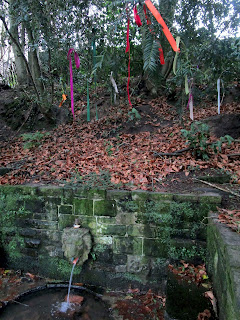If you listen to coverage of the violent riots and disturbances disrupting various English towns and cities at the moment, one of the more powerful sentiments expressed by people who form the crowds that eventually turn nasty – whether they stick around to take part or not – is that they were never asked whether they wanted their country to change the way it has. They weren’t consulted about it becoming multiracial, multicultural, or however you want to term it, and have ended up in an unsettling and unfamiliar place, or at least that’s what they think. There are many sorts of perceived hurt and neglect behind this – as William Cobbett famously said, ‘I defy you to agitate any fellow with a full stomach’ – and, were anyone of progressive opinions ever to have a conversation with someone who thinks it, you might want to explore whether those changes have actually had any negative impact on their wellbeing at all. But put that aside for a moment. On the face of it, the complaint is true: the UK has never formally asked itself what kind of future it preferred. True; but that’s because it couldn’t have.The biggest changes within a society are never consulted about, mainly because we don’t know they’re happening, and by the time they have it’s too late to do anything about it. We look back and, contrasting where we are now with where we were once, we can characterise the change in a single pithy phrase such as ‘multicultural society’, but we can only do so in retrospect. In retrospect, we might be able to identify a symbolic point when the shift, whatever it was, began, or even when it had taken effect. But it’s precisely that perspective that enables us to do so.
The UK was never asked in about 1962 whether it wanted to become a society in which Christianity was marginalised from public discourse and influence. The UK was never asked in about 1980 whether it wanted to move to an economy significantly powered by property price inflation with all the attendant social problems. The UK, and the world in general, was never asked, when the building of the Old Forge at Coalbrookdale in 1709 began the Industrial Revolution, whether it wanted to begin the process of exploitation of fossil fuels which would, possibly, threaten the continued existence of our civilisation. All the biggest changes that affect us are never consulted on, because we never see them happening. As far as a multicultural society is concerned, we could stop immigration tomorrow and it wouldn’t change what Britain now is, with 12% of its population non-white and an increasing proportion mixed-race. Nobody is going to undo that. During the Brexit referendum campaign, my spiritual director overheard an elderly couple talking at a bus stop and complaining that though they couldn’t see a GP it would get better once we were out of the EU because there’d be so much more money to spend on the NHS, ‘And then’, the old chap said to the old woman beside him, ‘we can start sending the darkies back’. ‘Of course’, commented the half-Indian Ms Formerly Aldgate when I related this to her, ‘because that’s where the darkies come from, Romania’. That absurdity reveals the fantasy of return to the past for what it is.
In a way, the question is asked, but it’s asked in a million tiny decisions rather than one big one. It’s asked, and answered, in the individual choices people make, and in the election of governments who don’t do anything to reverse the movement in a particular direction. As far as race is concerned, we had an opportunity to choose a National Front-dominated government in the 1970s, but chose not to elect even a single MP. Sometimes, and this is far worse, a government suggests in its rhetoric that it’s going to reverse something, it will, for instance, ‘Stop the Boats’, and then doesn’t. In that specific example there’s little excuse because there were plenty of people telling the last administration that it couldn’t succeed, which raises the question of whether it was pure cynicism or the ministers concerned managed to convince themselves that they meant it. Either way, they now find the phrase thrown back along with bricks and bottles.
Sometimes, there is indeed a moment when a society is asked a question that marks a decisive move in one direction or another. In 2015 and 2018 the people of the Irish Republic voted to legalise same-sex relationships and abortion, marking an unmistakable shift away from being a conservative religious country to being a secular liberal one. But it’s worth noting that the very majorities achieved in those referendums, about two thirds to one third, proved that the shift in attitude had already happened. I recall Malawian comedian Daliso Chaponda remarking that the UK should have learned from Africa ‘where we only ever have a referendum when the government already knows the result’. The joke has a good point: referenda whose outcome is uncertainly close don’t bring any debate to an end. The only sensible referendum is one that confirms what people already think.
You could play a game, maybe, as to what symbolic question you could ask the British public to make them feel they had indeed been consulted over whether to remain a multicultural society. Finding one that would simultaneously be both meaningful and yet bound to be answered one way would test anyone's ingenuity. But, if the research is correct to show that the British at least want to be liberal about immigration more than virtually any other country, it wouldn't break it.






























